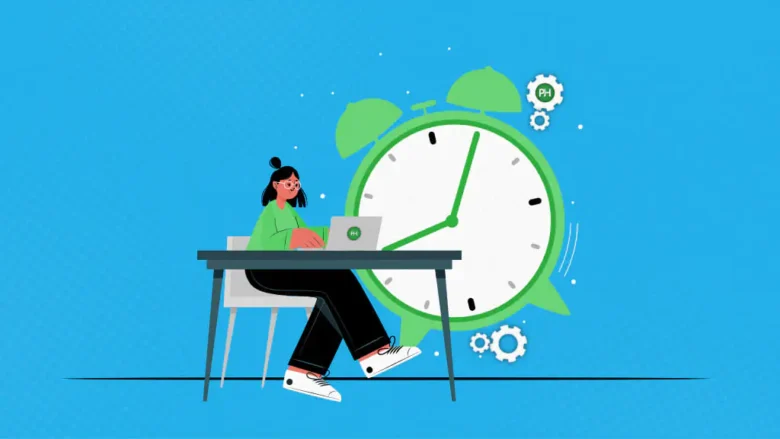Everyday tech innovations make life simpler and more enjoyable in subtle yet powerful ways. Discover how you can leverage these advancements to increase productivity and quality of life. Are You Seeking Employment or Staying Current in Your Industry? Daily habits that focus on digital skill development are essential. Begin by setting clear, achievable goals.
1. Invest in a Smartwatch
Smartwatches allow users to receive calls, texts, and notifications without taking out their phones from pockets—saving both time and effort when running, meeting with colleagues, or cooking dinner. Use your smartwatch to track your health and fitness goals. Studies have demonstrated that tracking steps can decrease the risk of heart disease and premature mortality.
However, it’s important to keep in mind that smartwatches shouldn’t replace medical-grade monitoring equipment. If you experience chest pain or lightheadedness as symptoms of a possible heart attack, call your physician immediately.
2. Take a Break from Social Media
Social media can be a wonderful way to stay in touch with loved ones, but it is equally important not to underestimate the power of face-to-face interactions. Spending time with people provides a sense of belonging that simply cannot be replicated online.
Social media breaks can help you hone in on meaningful relationships, improve mood and sleep quality, gain new perspectives on the world around us, and shed light on how your digital habits have formed—as well as give insight into setting healthy boundaries in the future.
3. Turn Down the Brightness
Bright screens can be tough on both eyes and power resources, so to minimize their brightness, you should turn off auto-brightness in the Control Center or Settings (sometimes it is called Display & Brightness) to find an optimal setting that meets both. A good way to quickly check if this works for you is to place white paper next to your display and compare its brightness against what the paper displays under current lighting conditions.
4. Create a Tech-free Zone
Establishing a tech-free zone in your home is a great way to strengthen family bonding and enhance well-being. This may involve setting aside designated areas like the dining table or bedroom as well as set times like an hour before bedtime for this activity. To make these zones successful, everyone needs to get on board. For example, have children switch their phone wallpapers from white to black, or arrange family activities like reading physical books, practicing mindfulness meditation techniques, drawing, or engaging in physical exercise free from technology.
Bedtime tech-free zones are especially essential to improving sleep quality, since blue light from screens can suppress melatonin production, which is essential to healthy circadian rhythms and circadian rhythm maintenance.
5. Turn Off Notifications
Being distracted by notifications can hinder productivity and focus, so taking control of your phone’s notification settings can help keep the focus where it belongs and promote a healthier work-life balance.
Studies demonstrate that turning off notifications reduces strain and improves performance, though its effects vary by individual. Some may experience increased self-interruptions and anxiety, while others report increased productivity and well-being as a result of disabling notifications. It’s important to remember that disabling notifications doesn’t mean uninstalling apps or declaring a digital detox; rather, it means being intentional with how you use your phone.
6. Take a Break from Work
Breaks from work are one of the best ways to recharge and boost productivity, helping reduce stress, increase focus, and prevent burnout. While taking an extended vacation may provide significant health and productivity gains, even shorter breaks can have significant beneficial impacts on productivity and well-being.
Establish a regular break schedule with your colleagues for optimal effectiveness. Setting an alert can also be very useful!
7. Turn Off your Phone Before Bed
Studies have revealed that using a smartphone before sleeping reduces both its duration and quality, leading to frequent awakenings through the night that make it more difficult to fall back asleep again. Text alerts, game buzzes, and email pings can all serve to interrupt your sleep and reset your brain’s focus—leading to lost time while trying to regain attention.
To avoid distractions and ensure a restful night’s rest, establish and stick to a strict “screens off” time every evening. Consider replacing screen time with non-tech activities that promote sleep, such as reading a physical book or Calm Sleep Story, taking a warm bath, or practicing deep breathing exercises.
8. Make a To-do List
A to-do list is an indispensable way to stay organized and on track with your goals, while simultaneously decreasing procrastination and time wasted on unimportant tasks.
Clearly describing each task is crucial for creating an effective to-do list. Otherwise, this may lead to confusion or miscommunication among team members and can even hinder collaboration efforts. Whenever possible, start each item on your list with an action verb so you can quickly see where your responsibilities lie for that day. Consider including all short-term tasks on a daily to-do list to prevent them from being forgotten, which will help ensure you reach your short-term objectives on schedule.
9. Stay Organized
Organization is essential to saving both time and effort. A chaotic home or workplace makes finding what you’re searching for harder; plus, it can be particularly irritating when suddenly your computer shuts down while working!
Organization may seem like a “born-with-it” trait, but that doesn’t have to be true: with some practical techniques and tools you can develop and enhance your organizing skills and start to feel less stressed out at work and home, which will ultimately benefit both your health and happiness.




